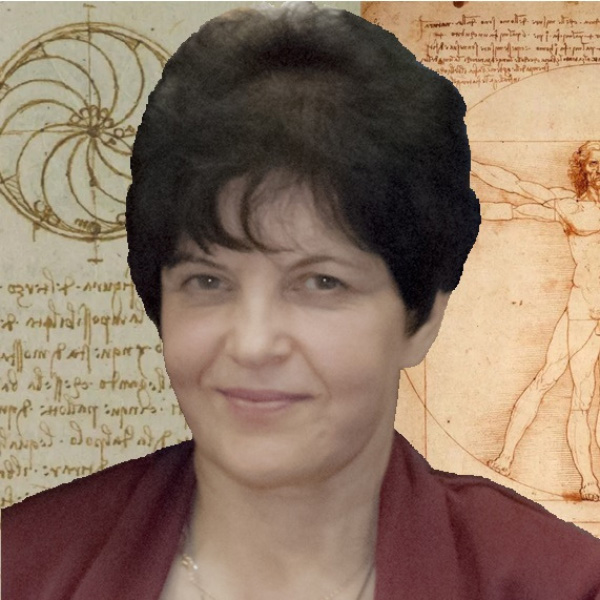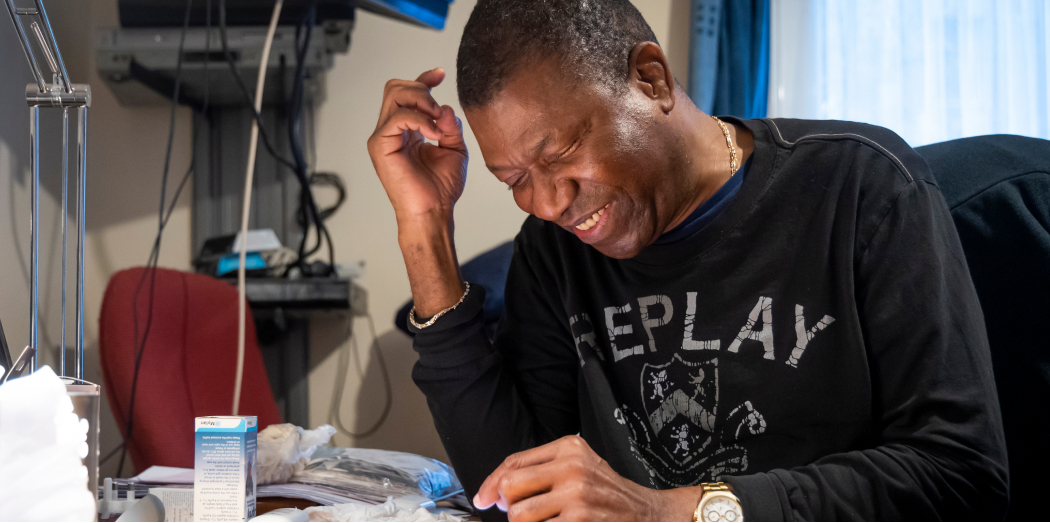Irina Trofimova
Overview
Irina Trofimova works at McMaster University since 1997 in the Department of Psychiatry & Behavioural Neurosciences. She is also a fully registered Clinical Psychologist, directing Psychological Services (a company operating in Downtown Toronto and Hamilton) since 2004 and a co-Director of the Late Life Memory Clinic, Dunnville Hospital since 2011. In co-authorship with Prof. Trevor Robbins (Cambridge University, UK), she offered a neurochemical framework FET summarizing the functional roles of the main neurotransmitter systems, hormones, and opioid peptides in behavioural regulation, including psychopathology. She has published 7 books, and 80+ articles in the field of neuroscience, clinical, differential, personality, cognitive, evolutional, and mathematical psychology and classifications of individual differences.
Irina is interested in four types of research initiatives and lines of cooperation with the McMaster Institute of Aging (MIRA):
1) Neurochemically-based individual differences that make some people age faster than others. Structuring neurochemical investigations using the FET framework allows to trace these differences in systematic and neuroscience-based ways.
2) Screening for biologically-based differences across the lifespan using a developed in her lab compact temperament test for all age groups and the structured analysis of biographic information.
3) Comparison of the efficiency of several tests commonly used to screen for dementia in older adults. 4) Cross-cultural longitudinal research.
Her detailed C.V. can be found at here.
Affiliations
- Assistant Clinical Professor (adjunct)
- Assistant Clinical Professor, Psychiatry & Behavioural Neurosciences
- Senior Researcher, Laboratory of Collective Intelligence
- Lomonosov Moscow State University
Education
- MSc, Lomonosov Moscow State University
- PhD, Russian Academy of Science
Related Projects
-
iMatr: Empowering older adults using democratic technology (DemTech) – Your Voice Matters
MIRA | envisAGE Project
-
Defining and understanding healthy aging among Canadian adults: A longitudinal analysis of data from the Canadian Longitudinal Study on Aging
Raymond and Margaret Labarge Chair in Research and Knowledge Application for Optimal Aging Fellowship
-
Physical and mental health correlates in aging adults with autism
2025 MIRA PhD Scholarship
-
Comprehensive prediction of osteoporosis fracture through machine learning and DXA (bone density) imaging
Skip to McMaster NavigationSkip to Site NavigationSkip to main content McMaster Institute for Research on Aging Contact Terms & Conditions Privacy Policy 1280 Main Street West. Hamilton, Ontario L8S 4L8. (905) 525-9140 © 2017 McMaster University
-
Investigating the influence of age and gender on perceptions of public transit and public transit safety
2025 Labarge Mobility Master’s Scholarship
-
Adaptation of the CP@clinic program to improve quality of life and healthy aging in low-income urban dwellers
MIRA | Dixon Hall Research Grant
-
Brain Health Resources and Integrated Diversity (BRAID) Hub
A knowledge mobilization hub integrating education, resources, and supports informed by a two-way exchange between researchers and knowledge users to move high-quality evidence-based guidelines into practice.
-
Promoting optimal aging among migrant returnees
2024 MIRA Catalyst Grant in Mobility and Aging
-
Evaluating and improving the inclusivity and accessibility of a community-based frailty intervention portal
2024 AGE-WELL MIRA Co-funded EPIC-AT Fellowship
-
PET tracers for diagnosis of basal forebrain neurodegeneration in aging
2024 MIRA PhD Scholarship | 2022 MIRA Master’s Scholarship
-
Applying convolutional neural networks to predict vertebral fracture risk in the lumbar spine using dual-energy X-ray absorptiometry images
2024 MIRA | sMAP Master’s Scholarship
-
PACIFIC – A Post-Acute Care Intervention for Frailty using Information and Communication Technology
Leveraging today’s health technology to co-design a complex community-based frailty intervention for older post-acute care patients.
-
A pilot validation study for a food-frequency questionnaire assessing muscle-health nutrients in older adults 65 years of age
2024 Undergraduate Summer Research Fellowship
-
POWER Exercise for Stroke Recovery (POWER): Ensuring fit for diverse abilities after stroke
2024 Undergraduate Summer Research Fellowship
-
Retinal imaging in prediction and diagnosis of cardiovascular diseases
2024 Undergraduate Summer Research Fellowship
-
Age-related microstructural changes at the osteochondral junction: Investigating cellular network in osteoarthritis
2024 Undergraduate Summer Research Fellowship
-
Barriers in living spaces and homes for individuals living with dementia
2024 Undergraduate Summer Research Fellowship
-
Dixon Hall’s rooming house initiative: Scoping the design and implementation of social housing in Ontario to inform priorities and practice
2024 MIRA | Dixon Hall Centre Knowledge Synthesis Grant
-
The promotion and sustainability of digital literacy skills for marginalized older adults
2024 MIRA | Dixon Hall Centre Knowledge Synthesis Grant
-
The EMBOLDEN trial: Enhancing physical and community MoBility in OLDEr adults with health inequalities using commuNity co-design
Researchers, older-adult citizens and community service providers co-design, implement and evaluate an innovative community-based intervention with the goal of improved physical and community mobility, nutrition, and social participation in older adults.
-
Intergenerational Study on Aging (MIRA-iGeN): Building a platform for intergenerational research
Major Program of Research
-
Evaluating the use of the Fit-Frailty App in inpatient rehabilitation units to monitor frailty in older adults
MIRA EPIC-AT Fellows (Master’s level)
-
Role of impaired resolution of inflammation on post-pneumonia cognitive decline in mouse aging model
MIRA | Global Nexus PhD Scholarship
-
Quantitative measurements of chronic pain
2023 IPRC Catalyst Grant
-
PRG-4: Application in the treatment of dry age related macular degeneration
PI: Heather Sheardown
-
Understanding antecedents to misinformation susceptibility for older adults
2022 Labarge Catalyst Grant in Mobility in Aging
-
Understanding how aging leads to amyloid diseases and neurodegeneration
2022 MIRA PhD Scholarship
-
Life-space mobility in the Canadian Longitudinal Study On Aging
2022 Labarge Master’s Scholarship
-
Corticomuscular coherence brain-computer interface to treat chronic neck pain
2022 IPRC Catalyst Grant
-
TNF impairs macrophage killing of Streptococcus pneumoniae
2022 MIRA/Global Nexus PhD Scholarship
-
Mapping how, where, and when sedentary behaviour occurs in older adults who are frail: A mixed methods longitudinal study
2022 AGE-WELL/MIRA Postdoctoral Fellow
-
Understanding pain phenotypes in individuals with early knee osteoarthritis
2022 MIRA IPRC PhD Scholarship
-
Designing a virtually administered walking speed test for older adults
2022 MIRA/AGE-WELL Epic PhD Award
-
Is GDF15 important for the anti-aging effects of metformin?
2022 MIRA Postdoctoral Fellow
-
Assessing validity and sensitivity of remotely collected wearable sensor data in patients
2021 Labarge Ph.D. Scholarship
-
Understanding how aging affects blood pressure through oxidative stress
2021 MIRA Master’s Scholarship
-
Promoting optimal aging through equitable access to “care of the elderly” family physicians
2021 MIRA Ph.D. Scholarship
-
Developing a real-world framework for remote patient monitoring technologies that promote optimal aging
2021 MIRA Postdoctoral Fellow
-
Ageism in the time of technological innovation: Understanding older people’s digital landscapes
2021 MIRA Postdoctoral Fellow
-
Examining the role of frailty in SARS-CoV-2 infection and vaccine response in older adults
2021 MIRA Postdoctoral Fellow
-
Building on what we know: Using design thinking to tailor routine assessments and interventions for fall and fracture prevention in long-term care
2021 Labarge Postdoctoral Fellow in Mobility
-
Tracking real-world changes in osteoarthritic gait patterns using wearable sensors
2020 MIRA Master’s Scholarship
-
Development of clinical tools to guide diagnosis and treatment of osteoporosis in older adults
2020 Labarge Ph.D. Scholarship
-
The effectiveness of MIRA’s educational program around competency building and interest in older adult care among undergraduate students using a program logic model
2020 McMaster Education Research, Innovation & Theory Postdoctoral Fellow
-
How can we screen frailty to prevent falls in older adults?
2020 CFN Interdisciplinary Fellowship (PhD)
-
Evaluating impact of a community co-design process
2020 MIRA/CHEPA Postdoctoral Fellow
-
Investigation of CARM1 in aging-induced skeletal muscle atrophy
2020 CFN Interdisciplinary Fellowship (Master’s)
-
Relieving social isolation and loneliness through storytelling at the time of a pandemic
2020 LCMA COVID-19 Catalyst Grant
-
Designing a real-time cybercrime alert system for older adults: Neurophysiological solution during COVID-19
2020 MIRA Postdoctoral Fellow
-
Modeling deviations in gait coordination and mobility in older adults
2019 Labarge Master’s Scholarship
-
Improving physical activity and mobility during a pandemic via live online exercise sessions for older persons: a pilot RCT
2019 Labarge Master’s Scholarship
-
Linguistic markers of social well-being in late adulthood
2019 AGE-WELL/MIRA Postdoctoral Fellowship
-
Physical activity and nutrition recommendations for older adults living with frailty
2019 AGE-WELL/MIRA Postdoctoral Fellowship
-
Emerging issues in older adults’ digital inequality
2019 AGE-WELL/MIRA Postdoctoral Fellowship
-
Promoting optimal aging through equitable access to specialized geriatric services in Ontario
2019 MIRA Postdoctoral Fellow
-
Understanding older adults’ active travel
2019 MIRA Postdoctoral Fellow

